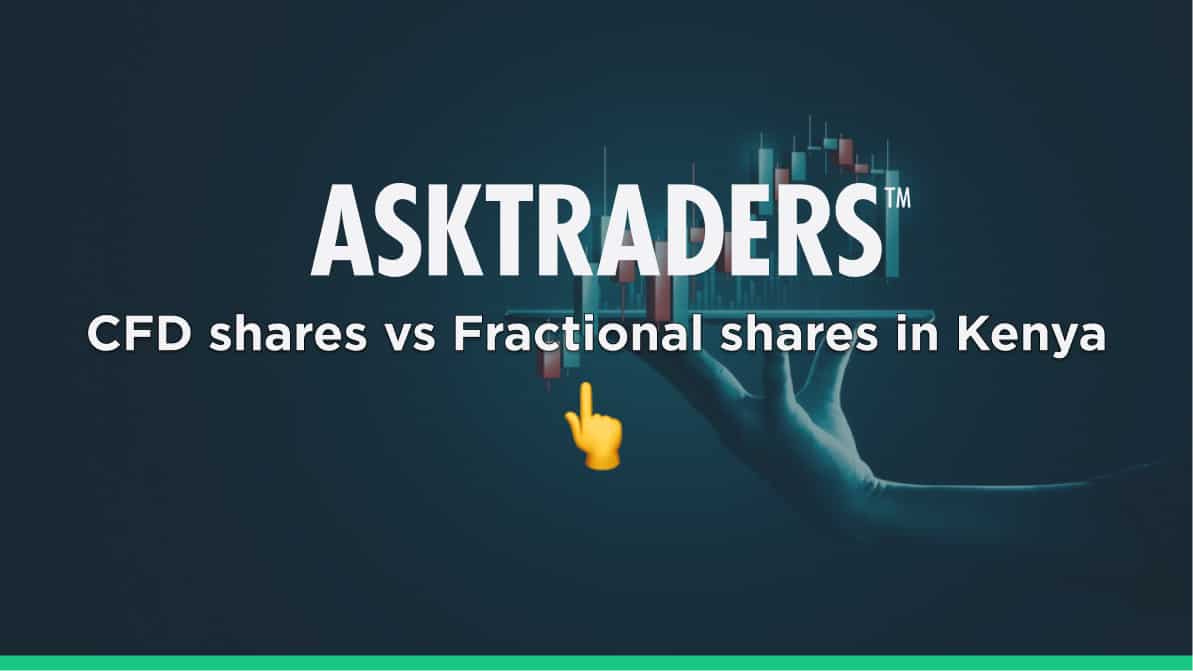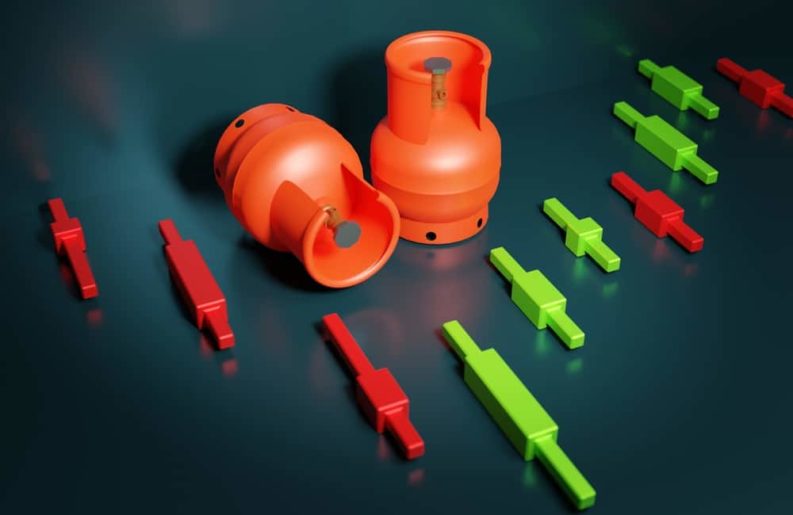Stock exchanges have been a popular venue for Kenyans to invest their money. Therefore, Kenyan investors can choose from a wide variety of alternatives to buying shares directly from companies listed on the stock exchange.
YOUR CAPITAL IS AT RISK

In this piece, we take a look at two such examples—contracts for difference (CFDs) and fractional shares—and discuss the merits of both for investors in Kenya.
Table of contents
What are CFDs?
Contracts for differences (CFDs) are a type of financial derivative in which the spread between a trade's opening and closing prices is paid out in cash. When trading CFDs, you should not expect to receive a specific stock or item.
Security and derivative price movements can be traded using CFDs. Derivatives are a type of financial investment that derives its value from another asset. Traders and investors in Kenya use CFDs to place bets on the direction of the underlying asset or security's price.
When trading CFDs, investors can wager on either a price increase or price decline. CFDs are traded in much the same way as stocks, with buyers betting on a gain in price and sellers anticipating a decrease.
If the value of the underlying asset rises after the buyer of a CFD purchases it, the buyer may choose to sell, at which point the buyer must calculate the spread between the purchase and sale prices. The brokerage account is where the investor's net profit or loss from trading is kept.

Exchange-traded funds (ETFs) are just one of several assets and securities that can be traded using Contracts for Differences (CFDs). Traders in Kenya will use corn and crude oil futures contracts, among others, to speculate on future price movements.
Futures contracts are predetermined, standardised agreements to buy or sell an asset at a future date and price.
Contracts for difference (CFDs) are not futures contracts, despite popular belief; rather, they provide investors with the opportunity to trade the price changes of futures. Similar to the trading of traditional securities, CFDs have buy and sell prices but no set expiration dates.
What are fractional shares?
An equity investment that is less than one whole share is called a fractional share. The issuance of these shares could have resulted via a stock split, a dividend reinvestment plan, or some other corporate action.
Although it would benefit investors, holding fractional shares is usually not possible due to the illiquidity of the stock market.
The creation of fractional shares can occur through a number of mechanisms, including stock splits, mergers, and acquisitions.
Only through a major brokerage in Kenya can fractional shares be combined with other fractional shares to form a complete share. Possible delays in selling the fractional shares are a result of low demand for the stock on the market.
It's possible that some Kenyan investors who unwittingly acquired fractional shares as a result of events like stock splits will decide to sell them.
Assuming the stock is in high demand, they may be able to find a brokerage that will buy the fractional share. In addition, they may look for a Kenyan brokerage firm that is willing to sell another half share.
YOUR CAPITAL IS AT RISK
Why should you trade CFDs?
Contracts for difference (CFDs) allow Kenyan investors to track the movement of a security's market price without having to actually purchase or take delivery of the security or underlying asset.
The ability to borrow funds from one's broker allows for margin trading in CFDs, which increases one's leverage or the size of one's position in order to magnify gains. If you want to trade with a broker in Kenya, you'll need to have a substantial amount of money in your account.
Contracts for difference (CFDs) often offer greater leverage than more conventional trading methods.
The CFD market typically has fewer restrictions than traditional exchanges. Because of this, opening a CFD brokerage account may cost less than you expect.

With a Kenyan broker, you may open an account with as little as $100. Return on investment can be boosted further by cash dividends paid out on CFDs, which are securities that reflect the acts of actual companies.
The majority of CFD brokers have a presence in every significant market. Through their broker's platform, investors can gain access to all available marketplaces.
When everything is said and done, a trader in Kenya can use CFDs to open a long or short position, as well as a buy and sell position, in a matter of minutes. The CFD market is often open to short sells. At any time, a short sale of an instrument is possible.
Why should you trade fractional shares?
When we talk about “investing in fractional shares,” we're referring to the option to buy a smaller portion of a larger share all at once. If an investor is turned off by the high cost of a company's shares, this is a sensible option. The accuracy of shareholder investments is improved as a result.
You don't have to save up to acquire a whole share of stock in a company with a high stock price. It's not necessary to spend a lot of money to get going.
If a stock or ETF does not permit fractional share investing, then you can only purchase it in whole dollar increments. You can invest the exact amount you want by buying a portion of a share instead of a whole one.
Finally, it can be challenging to precisely allocate assets by purchasing shares in just entire increments from a variety of Kenyan and international corporations. The ability to invest in multiple companies with a single dollar is made feasible by fractional shares.
YOUR CAPITAL IS AT RISK
Final Thoughts
Both CFDs and fractional shares fall under the category of “no-full-ownership” trading methods. Comparatively, CFD trading allows you to wager on the underlying price of an asset while holding only a fraction of a share in the company.
CFDs and fractional shares both offer advantages to Kenyan investors. However, CFDs are typically less complicated to trade, gain access to, and resell.
Because of this, most Kenyan traders would be better off starting with CFD share trading and only moving on to fractional shares when their accounts can handle investments in share values they cannot easily resell.




